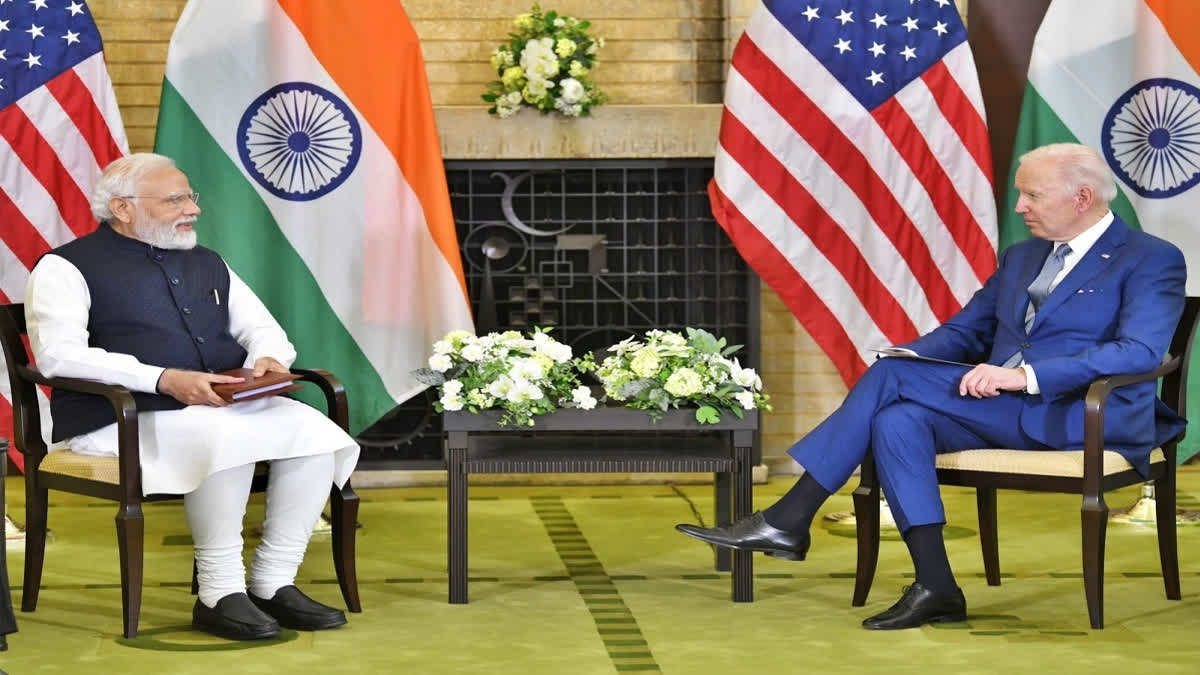The world’s largest and technologically most advanced economy, the United States of America, Thursday announced a comprehensive technology partnership with India during Prime Minister Narendra Modi’s first state visit to the country.
The importance of a technology partnership between the two countries can be gauged from the fact that in the joint statement, technology partnership was first among all the aspects that covered defence, space, geopolitics, trade and economy among others.
In the joint statement issued by US President Joe Biden and India’s Prime Minister Narendra Modi, both the leaders said the technology will play the defining role in deepening our partnership as they hailed the inauguration of the Initiative on Critical and Emerging Technology (iCET) in January 2023 as a major milestone in U.S.-India relations.
The iCET agreement was the most definitive signal that the USA is willing to share critical technologies with India be it defence such as core technology for producing fighter jet engines in India or technology related to the production and fabrication of semiconductor chips that are building blocks of any modern electronic device these days from laptops to mobile phones, from flat panel televisions to modern automobiles.
As a result, both India and USA called on public bodies, private entities and academic institutions to collaborate with each other so that the two countries can foster an open, accessible, and secure technology ecosystem, based on mutual confidence.
Semiconductors
The semi-conductor crisis witnessed by the automobile and electronics sector in 2021-22 was an eye-opener for Indian policymakers as several leading automobile manufacturers in the country such as Tata Motors, Suzuki Motors and Mahindra Group were forced to cut down their production or temporarily shut their plants due to acute shortage of microchips used in the vehicles.
In order to overcome this vulnerability in the country’s supply chain, Prime Minister Modi pressed for the development of chip design and fabrication capabilities within the country. In the statement, both leaders hailed the signing of an MoU on the Semiconductor Supply Chain and Innovation Partnership as a significant step. This will promote commercial opportunities, research, talent, and skill development.
Micron Technology Inc.
During the PM’s US visit, Micron Technology, Inc. announced an investment of up to $825 million to build a new semiconductor assembly and test facility in India with support from the Indian government. The combined investment valued at $2.75 billion would create up to 5,000 new direct and 15,000 community job opportunities in the next five years.
Lam Research to train Indian engineers
Another significant proposal came from Lam Research to train 60,000 Indian engineers through its Semiverse Solution virtual fabrication platform to accelerate India’s semiconductor education and workforce development goals.
Applied Materials to invest $400 million
Santa Clara, California-based US semiconductor manufacturer Applied Materials announced that it will invest $400 million to establish a collaborative engineering centre in India. Applied Materials is a leading manufacturer of semiconductors with worldwide operations and supplies integrated circuit chips for computers, smartphones and television sets.
